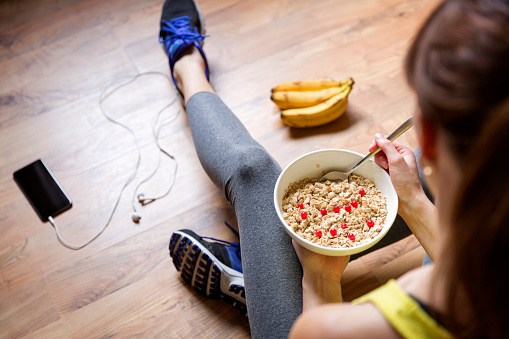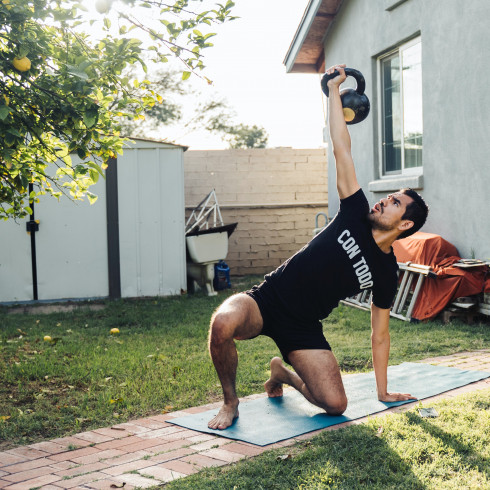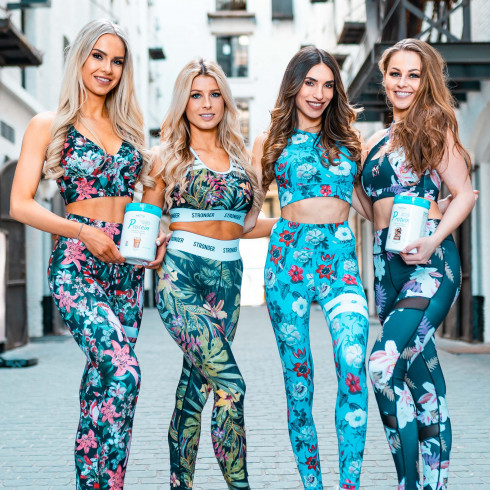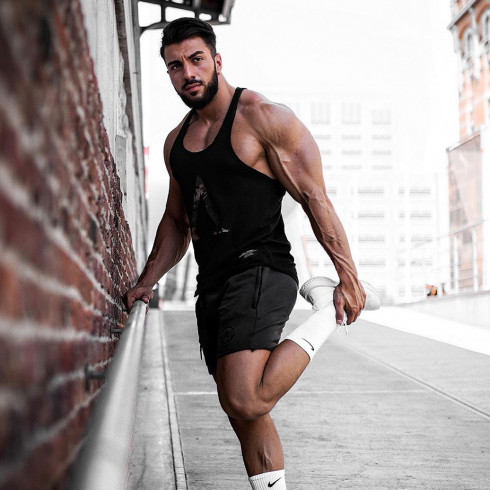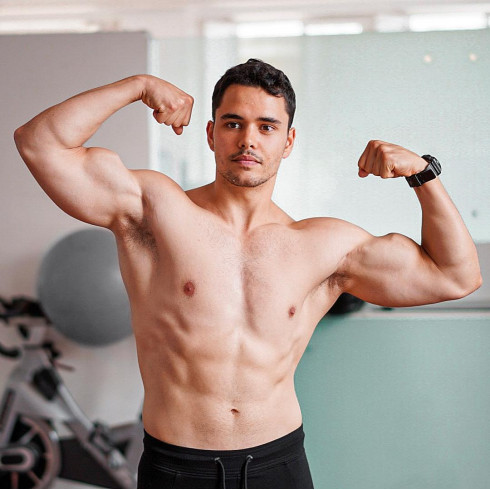Vegan bodybuilding: How to gain mass healthily!
So you're wondering how a vegan gets his protein intake if he doesn't eat meat or fish? It's simple! He eats a balanced diet, taking care not to miss any nutrients and vitamins.
That's right! The basis in bodybuilding is to have a balanced diet. It is no coincidence that we say that bodybuilding is 70% diet and 30% training.
To get back to proteins, why are they so important ?
Protein will help the muscle to repair and strengthen itself. When we exercise, especially when we lift weights in bodybuilding, we will create microscopic tears in our muscles (nothing serious, don't worry!). These tears will be repaired by our body during the rest period. This is what will strengthen the muscle. Proteins are very important because they will help this process of muscle recovery.
Therefore, in case of protein deficiency, the muscle will have difficulty repairing itself and thus becoming stronger after each training session.
Proteins are generally found in meat and other animal products. But it is possible to consume the right amount of protein without eating animal products. In fact, animal proteins can be replaced by plant proteins. Vegetable proteins offer amino acids (which form proteins) necessary for our body.
To avoid deficiencies, it is necessary to vary the plant proteins consumed. To do this, you should include in your diet whole grains, nuts, legumes or soy foods.
Proteins are commonly found in meat as well as in other animal products. However, it is possible to consume the right amount of protein without eating animal products. Indeed, animal proteins can be replaced by plant-based proteins. Plant-based proteins provide the amino acids (which make up proteins) necessary for our body.
Here is a short list of plant proteins:
• Whole cereals : oats, quinoa, brown rice, etc
• Nuts : walnuts, almonds, cashews, pumpkin seeds, etc.
• Legumes : beans, lentils, chickpeas, etc.
• Soy-based foods : tofu, soy milk, etc.
In summary: Plant proteins contain amino acids that are essential to our body. These amino acids form the proteins that are useful for the repair of our muscles, thus strengthening them.
If your diet is varied and balanced, and if you give enough amino acids to your body, it is possible to replace animal protein with plant protein and therefore build muscle by having a vegan diet !
Related posts
-
 Which sports are trending in 2021?
Posted in: Lifestyle03/05/2021The last two years have been quite different from the previous ones, mainly due to the impact of the coronavirus...Read more
Which sports are trending in 2021?
Posted in: Lifestyle03/05/2021The last two years have been quite different from the previous ones, mainly due to the impact of the coronavirus...Read more -
 Why did you create a line dedicated to women?
Posted in: Lifestyle13/04/2021Is this true? So why did you create a line only for the female gender? Women are not much different from men. It...Read more
Why did you create a line dedicated to women?
Posted in: Lifestyle13/04/2021Is this true? So why did you create a line only for the female gender? Women are not much different from men. It...Read more -
 Focus on World Tennis Day.
Posted in: Lifestyle04/03/2021This Thursday, March 4, we celebrate International Tennis Day. Launched in 2013 by the ITF (International Tennis...Read more
Focus on World Tennis Day.
Posted in: Lifestyle04/03/2021This Thursday, March 4, we celebrate International Tennis Day. Launched in 2013 by the ITF (International Tennis...Read more -
 Interview with our ambassador Reda Maimouni.
Posted in: Lifestyle01/05/2020Foreign Language teacher by day, it is in sports that Reda Maimouni thrives. Let's go meet this musculation...Read more
Interview with our ambassador Reda Maimouni.
Posted in: Lifestyle01/05/2020Foreign Language teacher by day, it is in sports that Reda Maimouni thrives. Let's go meet this musculation...Read more -
 Interview with our ambassador Victorien Oudry.
Posted in: Lifestyle08/07/2020Meet Victorien Oudry, this sports coach passionate about bodybuilding is also a QNT Ambassador. In this interview he...Read more
Interview with our ambassador Victorien Oudry.
Posted in: Lifestyle08/07/2020Meet Victorien Oudry, this sports coach passionate about bodybuilding is also a QNT Ambassador. In this interview he...Read more
Blog categories
Popular posts
-
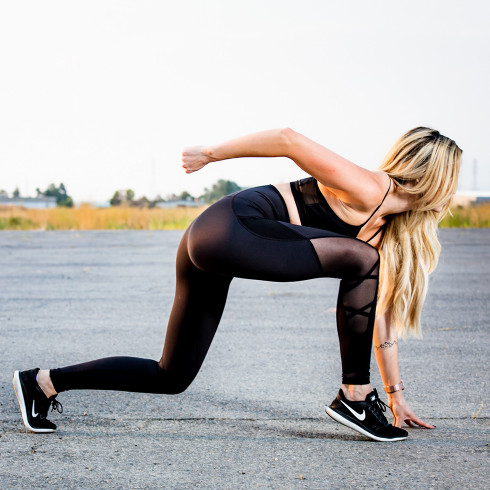 Looking thinner but at a heavier weight? Is that possible?04/10/2021Posted in: Our tipsAdvertising has shaped our thinking! We have been forced for years to believe that losing weight is the key to having...Read more
Looking thinner but at a heavier weight? Is that possible?04/10/2021Posted in: Our tipsAdvertising has shaped our thinking! We have been forced for years to believe that losing weight is the key to having...Read more -
 10 Expert Tips to Maximize the Effectiveness of Creatine26/08/2024Posted in: Our tipsThis article presents ten tips to maximize the effectiveness of creatine. It emphasizes the importance of choosing...Read more
10 Expert Tips to Maximize the Effectiveness of Creatine26/08/2024Posted in: Our tipsThis article presents ten tips to maximize the effectiveness of creatine. It emphasizes the importance of choosing...Read more -
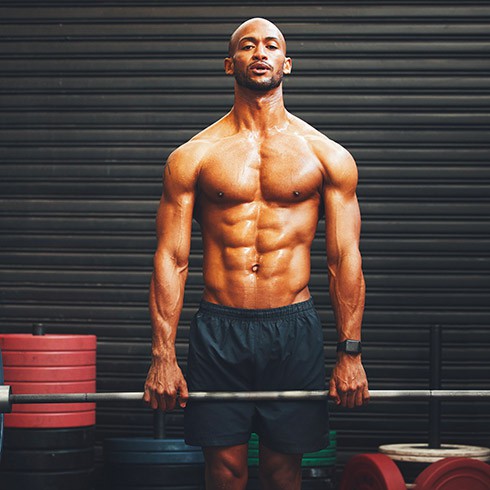 10 BENEFITS OF GLUTAMINE.02/01/2024Posted in: Our tipsDiscover the power of L-glutamine, an underrated superhero in the world of amino acids! Essential for revitalizing...Read more
10 BENEFITS OF GLUTAMINE.02/01/2024Posted in: Our tipsDiscover the power of L-glutamine, an underrated superhero in the world of amino acids! Essential for revitalizing...Read more -
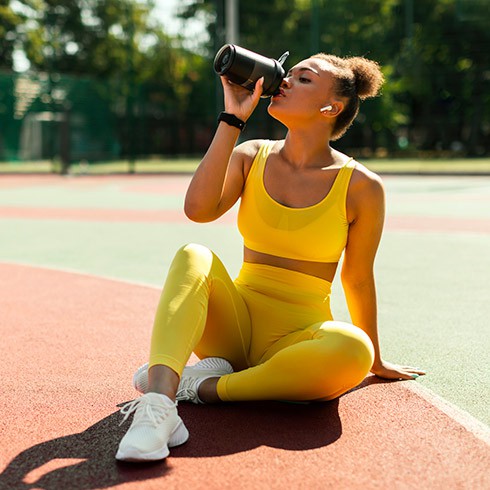 Proteins for weight loss !29/12/2023Posted in: Our tipsDive into the fascinating world of proteins and their key role in weight loss. Discover how to choose the best...Read more
Proteins for weight loss !29/12/2023Posted in: Our tipsDive into the fascinating world of proteins and their key role in weight loss. Discover how to choose the best...Read more -
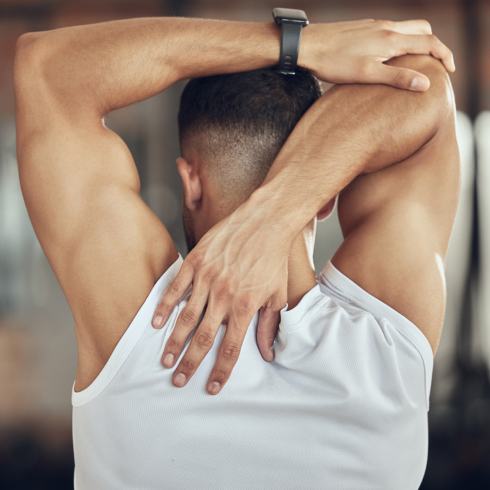 The advantages and disadvantages of sports and competitive sports.28/08/2024Posted in: Our tipsExplore ways to prevent the demanding aspects of competitive sports by adopting preventive and management practices....Read more
The advantages and disadvantages of sports and competitive sports.28/08/2024Posted in: Our tipsExplore ways to prevent the demanding aspects of competitive sports by adopting preventive and management practices....Read more
